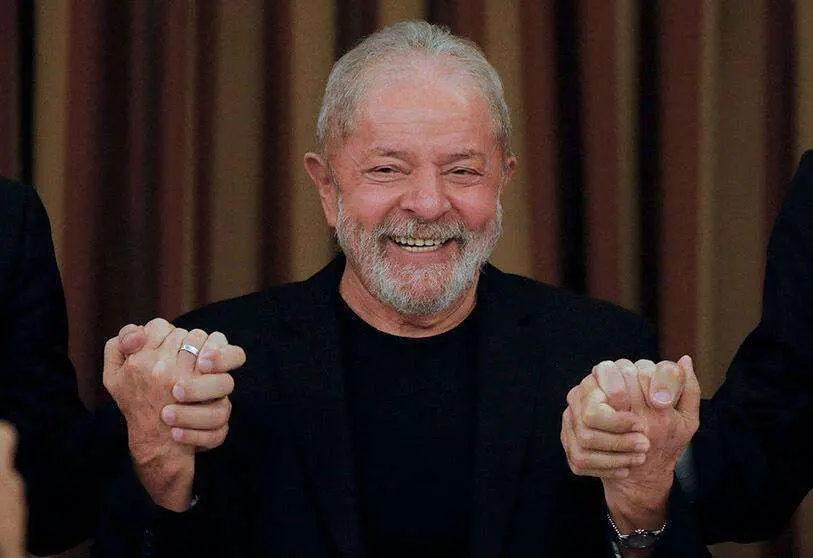Brazil elections: Lula and Bolsonaro in search of the useful vote

More than 156 million people will decide the future of Brazil this Sunday, according to the Superior Electoral Court (TSE), in an election in which the president, governor, senator and federal, state or district deputies will be elected.
Voting in Brazil is compulsory from the age of 18 to 70, unless expressly justified. For young people aged 16 to 18 and over 70, voting is optional. There is great expectation in Brazilian society about the upcoming election results.
According to the latest polls conducted on Thursday by the Data Folha Institute, Lula would receive 48% of voting intentions compared to 34% for the far-right Jair Bolsonaro, which would make him the winner of the first round. Lula, who has been leading all the polls for several months, with around 47% of the vote, is calling for a "useful vote" to try to define the dispute in the first round. Bolsonaro, with around 31%, is fighting to reduce the gap to try to force a second round, scheduled for 30 October if no candidate wins more than half the votes on Sunday. To ensure that the elections were held in a safe environment on Thursday, the TSE decided to ban the carrying of arms and ammunition throughout the country between Saturday and Monday.
The fight for the useful vote, which is estimated to be 14% of the total, is being the main focus of both candidates because, according to surveys by the researcher of the University of Rio de Janeiro, Carolina Almeida de Paula, the population reflects rejection of both candidates because while 50% of respondents say they would never vote for Bolsonaro, 38% say the same of Lula. As Carolina Almeida told Efe news agency, "I think these are the most polarised elections since Brazil regained democracy (1985). It is undoubtedly the election with the two most concentrated forces". She clarified that polarisation does not mean that both candidates are extremists.

One of the keys to victory will be the vote of the Afro-descendant population, which, according to the Brazilian Institute of Geography and Statistics (IBGE), is 9.1%. For the first time, the issue of racism is a key electoral issue in the country, as it has never been addressed so persistently in the electoral campaign of the main candidates.
In the quest to capture the racial vote, Lula intends to implement a Quota Law, approved in 2012, which establishes a minimum number of seats for the Afro-descendant population. The law had the merit of recognising and giving opportunities to the black population of Brazil, the last country in the Americas to abolish slavery, in 1888. However, it has also been criticised for not being part of a broader project to reform public primary education. For the Brazilian Democratic Movement (MBD), a strong social policy is also needed to prevent them from remaining in a state of vulnerability. Ciro Gomes of the Democratic Labour Party (PDT) also associates the link between violence and the racial issue with his programme. According to the Public Security Yearbook, 84% of those killed by state security forces are black. In contrast to the other presidential candidates, Bolsonaro remains silent on the racial issue.
The last debate between presidential candidates before the first round, on TV Globo, was marked by a harsh exchange of accusations between the two candidates who polarise the electoral race and by a series of requests for the right of reply, where President Jair Bolsonaro (PL), with a very aggressive stance, based his accusations against former president Luiz Inácio Lula da Silva (PT) on allegations of corruption that marked the governments of the Workers' Party. Lula was also incisive in his allusions to his opponent.

According to Bloomberg, Lula evoked Brazil's golden age, when government policies eradicated hunger, reduced poverty and strengthened the ranks of the middle class, a beautiful era he promised to revive. Lula is also the only viable alternative to Bolsonaro from those who accuse the incumbent president of failing to address the pandemic and undermining democratic institutions and civil rights.
Lula pledged to work to change the rules that limit public spending, reform the tax system so that the rich pay more and the poor pay less, ensure that Brazil is self-sufficient in oil and fuel, and protect the Amazon rainforest. The state of the economy is generally the main concern of Brazilian voters, and the economy has shown signs of improvement in recent months. Growth exceeded expectations in the second quarter and unemployment is at its lowest level in almost 7 years, although still above 9%.

Lula spoke of his pride in having been president and recalled the achievements of his government. Bolsonaro closed the debate by repeating his campaign slogan "God, country, family and freedom" and listed, for the first time, his agenda of customs against abortion and "gender ideology".
Americas Coordinator: José Antonio Sierra.








